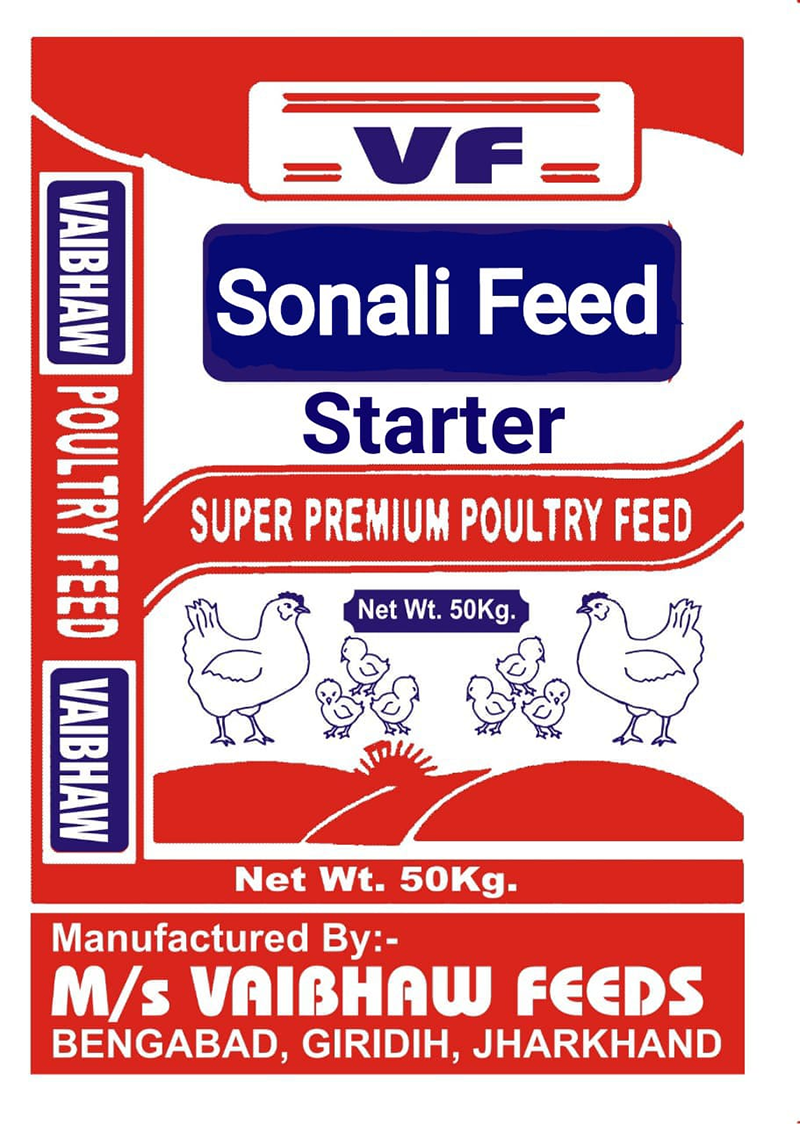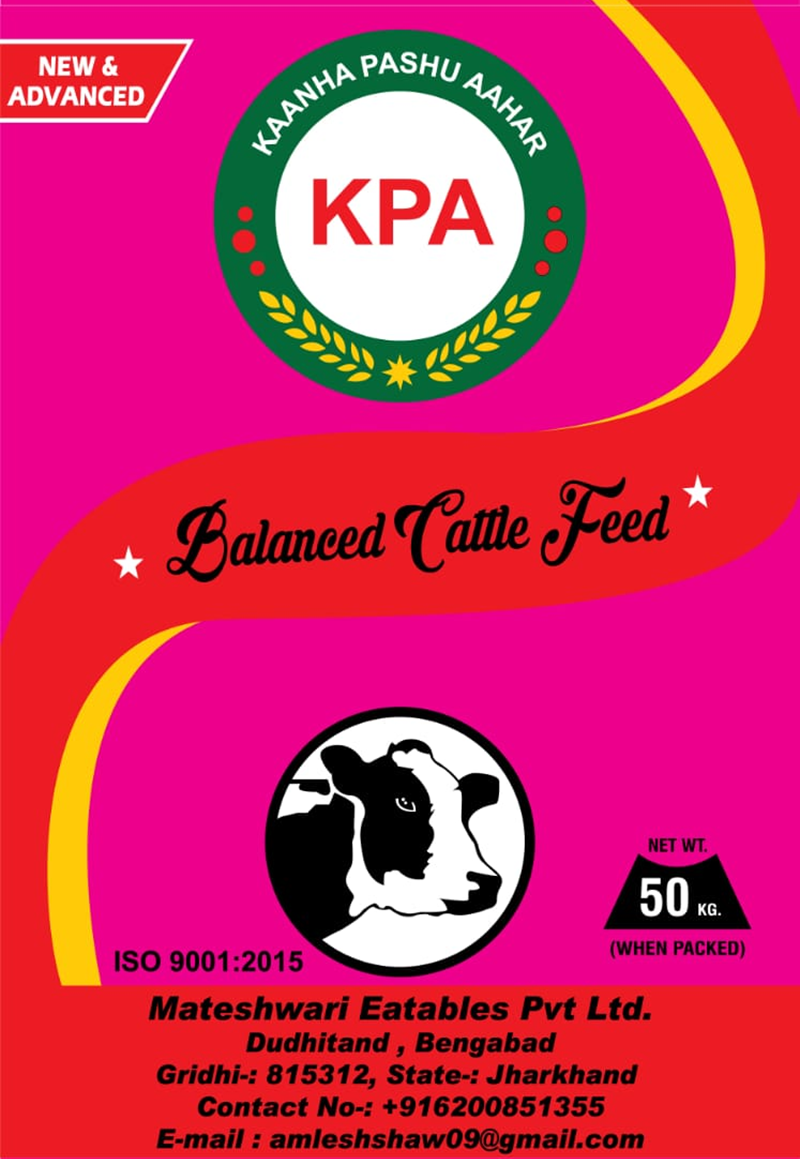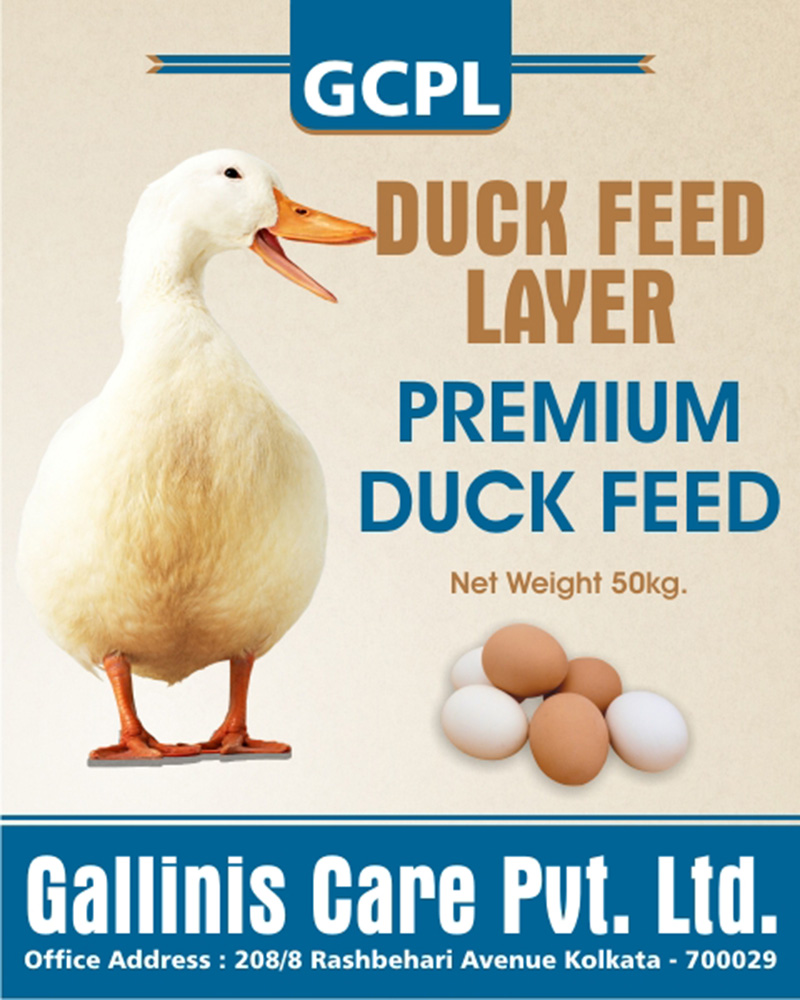


POULTRY FEEDS
Poultry feed is food for farm poultry, including chickens, ducks, bater and other domestic birds.
Chicken and poultry feed comes in three forms: crumbles, pellets and mash. Crumbles are excellent if you can get them, Crumbs is usually used for baby chicks and middle age birds and pellets are preferred for adult age of bird.
Healthy poultry require a sufficient amount of protein and carbohydrates, along with the necessary vitamins, dietary minerals, and an adequate supply of water.
An amino acid balanced formula is the one which will supply different nutrients in right proportions according to the requirements for maintenance and various productive functions. The nutrients required by poultry must be supplied in ratio through the ingredients available in sufficient quantity economically.
Company (GCPL) manufactured and marketed Premium and Standard quality feeds for broiler and Exclusive special feeds for Desi Breed Birds. Apart from Poultry feeds other Cattle and Duck feeds available at low cost.
Poultry feed, nutrition and water
Providing the right nutrition is important for poultry growth, production and health. Different energy requirements are required, depending on factors including bird age and production status. Providing adequate nutrition is important so that the bird is able to achieve its productive potential and also for it to sustain health.
Feed that is of poor quality, not in the right form or does not contain the right levels of energy and mix of nutrients, can potentially cause nutritional stress and lead to other health concerns.
Nutrient requirements
The nutrient requirements of poultry vary depending on factors such as:
genetics (e.g. species, breed or strain of bird)
age
sex - significant differences in diet for male and female once sexually mature
reproductive state (i.e. egg production in hens and sexual activity in males)
ambient temperature
housing
health of the bird
production (e.g. meat or egg laying).
A bird's diet must include a combination of carbohydrates, fats, proteins, vitamins, minerals and water for optimal growth and production.
The Poultry Hub has detailed information about the poultry nutritional requirements for:
egg laying chickens
meat chickens
turkeys.
Different feed rations are formulated for the different ages and stages of production. Starter, grower, finisher, layer and breeder rations will usually have different levels of protein, energy, vitamins and minerals depending on the nutritional requirements of the birds.
Feed intake
The amount of feed consumed by poultry varies depending on whether the bird is being raised for egg or meat production. Feed intake will also vary depending on environmental conditions such as temperature, physical activity and whether the birds have access to other sources of feed such as grass in free range systems.
Other factors include:
age
breed
health
welfare
availability of, and access to, feed and water.
Feed ingredients : Poultry feed contains many ingredients including:-
grains (e.g. wheat, barley, sorghum)
protein meals (soybean meal, canola meal, animal protein meals)
fats and oils
amino acids
vitamins and minerals.
Feed ingredients will vary depending on a number of factors including product availability, locality, price and quality of the raw ingredients.
Drinking water
Poultry should always have access to plenty of cool, fresh drinking water, but make sure the water is low in salt. Salt is already provided in poultry feed, and drinking water with high salt levels, may cause an oversupply of these minerals and lead to:
increased water intake
wetter droppings and wet litter issues
reduced performance.
Water provided for drinking, cooling and range irrigation must be free from microbial contamination that could potentially cause disease in poultry, or lead to food safety issues. Test water regularly to ensure that it meets specific microbiological and contaminant standards.
Water that does not meet the standards, including all surface water such as creek, dam or tank water, must be treated with approved methods to kill potential disease organisms. Read the National Water Biosecurity Manual for Poultry Production (PDF, 1.8MB) for approved water treatment methods.
Water intake
Generally, water intake should be about 1.5 to 2 times feed intake.
Poultry water consumption is dependent on factors including:
food consumption (i.e. reduced food intake may lead to reduced water intake and vice versa)
water being too hot
contaminated water
ambient temperature
type of drinkers used
drinker height
water pressure.
Check drinkers daily to ensure they are in working order. Drinker systems should also be cleaned and flushed regularly to remove any microbial or mineral build up in the lines.
